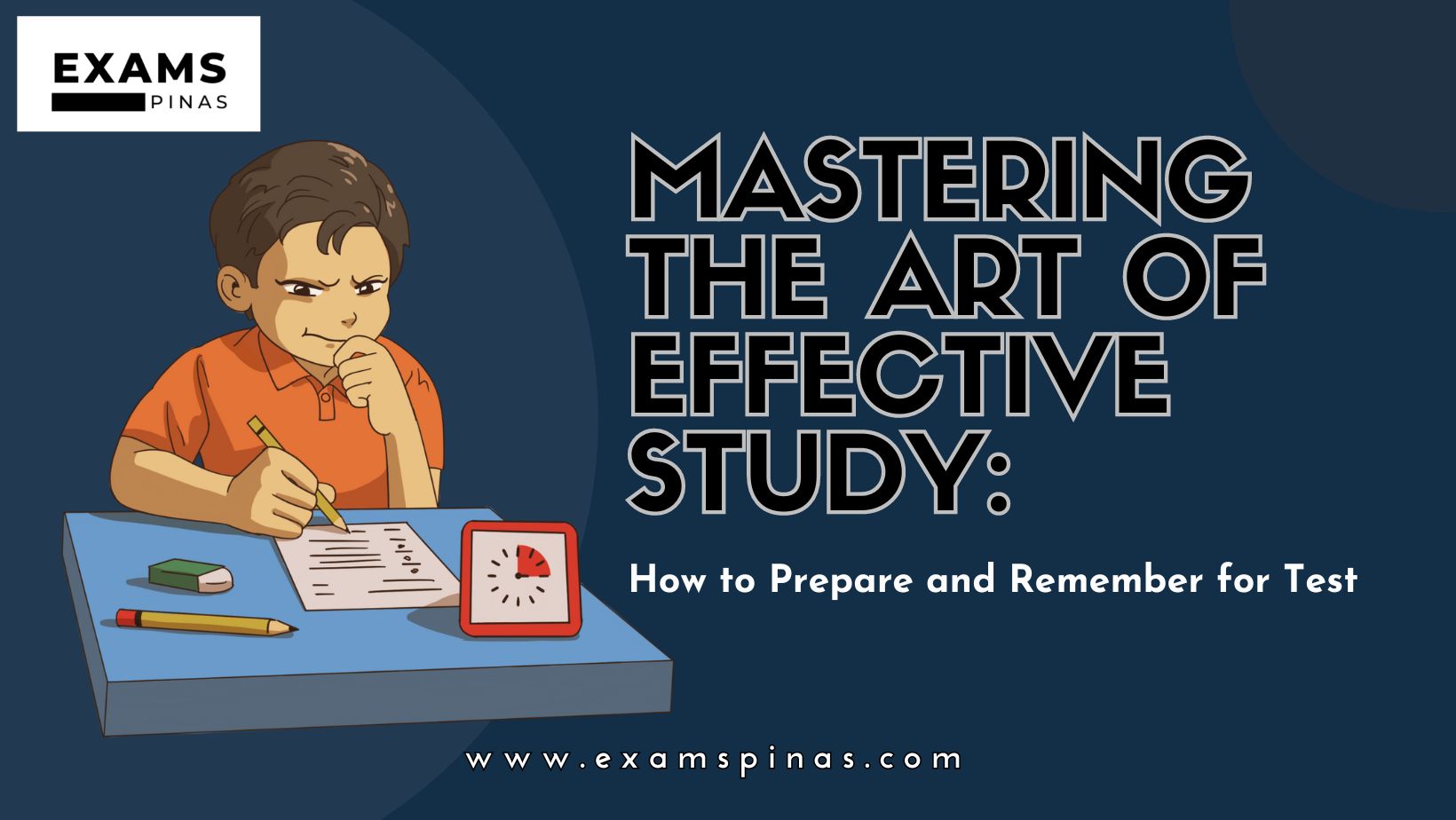When facing a test, effective study strategies are key to success. Whether you’re a student gearing up for exams or a professional preparing for a certification, mastering the art of studying and retaining information is crucial. In this guide, we’ll explore practical tips to help you study efficiently and enhance your memory recall during tests.
- Create a Structured Study Plan:
Start by organizing your study material and creating a realistic study plan. Break down the content into manageable sections, setting specific goals for each study session. This structured approach helps prevent overwhelm and ensures comprehensive coverage.
- Active Learning Techniques:
Passive reading is often less effective than active learning methods. Engage with the material through techniques like:
- Flashcards: Condense information into key points.
- Mind Maps: Create visual representations of concepts.
- Teaching Others: Explain topics as if you’re teaching someone else.
- Utilize Multisensory Learning:
Incorporate multiple senses into your study routine. Reading, writing, speaking, and listening engage different parts of the brain, reinforcing your understanding. For instance, read aloud, write summaries, or listen to relevant podcasts or lectures.
- Practice Retrieval Techniques:
Actively recalling information from memory enhances long-term retention. Quiz yourself, create practice tests, or use flashcards to reinforce what you’ve learned. Regular retrieval practice strengthens your memory and improves recall during exams.
- Interconnect Information:
Establish connections between different concepts. Relate new information to what you already know, creating a web of interconnected knowledge. This not only aids comprehension but also enhances memory recall.
- Effective Time Management:
Study sessions should be focused and well-timed. Break down your study time into manageable intervals, incorporating breaks. The Pomodoro Technique, with 25-minute focused sessions and 5-minute breaks, is a popular method that can enhance concentration.
- Prioritize Difficult Topics:
Identify challenging subjects and allocate more time to understand and memorize them. Tackling complex topics first ensures that you’re at your mental peak when addressing the most demanding content.
- Healthy Lifestyle Choices:
Physical well-being contributes significantly to cognitive function. Ensure you get adequate sleep, maintain a balanced diet, and incorporate regular exercise into your routine. A healthy lifestyle positively impacts your ability to focus and retain information.
- Mindfulness and Relaxation Techniques:
Incorporate mindfulness practices or relaxation techniques into your routine, such as meditation or deep breathing exercises. Managing stress is essential for optimal cognitive function and memory retention.
- Regular Reviews:
Consistent review of previously studied material is crucial. Spaced repetition, where you revisit information at increasing intervals, helps cement knowledge in your long-term memory.
Effective study habits are a journey of exploration to discover what works best for you. Implementing a combination of these strategies, tailored to your learning style, will not only enhance your test preparation but also cultivate a lifelong commitment to efficient and enjoyable learning. Remember, success in exams is not just about the quantity of study but the quality of your study methods.

